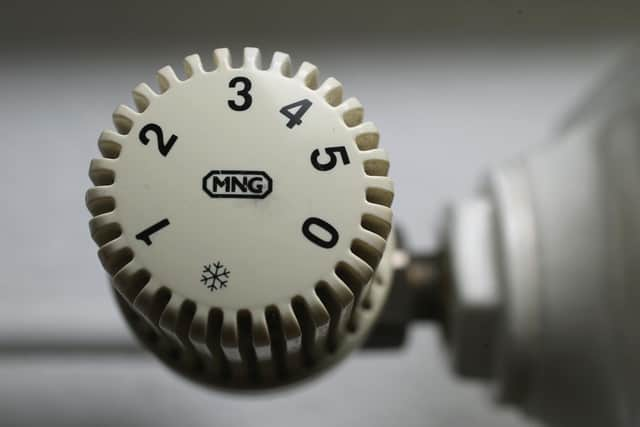Cost-of-living crisis: Consultancy forecasts annual energy bill to now hit more than £4,200 in January
In a new dire outlook for households, Cornwall Insight said bills are set to soar to around £3,582 in October, from £1,971 today, before rising even further in the New Year.
Ofgem is set to put the price cap at £4,266 for the average household in the three months from the beginning of January.


Advertisement
Hide AdAdvertisement
Hide AdThat equates to a rise of £650 for households in Scotland, England and Wales compared with the energy consultancy’s estimate issued just last week.
It comes as Ofgem last week announced changes to how it will calculate the price cap on energy bills going forward.
“While our price cap forecasts have been steadily rising since the summer 2022 cap was set in April, an increase of over £650 in the January predictions comes as a fresh shock,” said Craig Lowrey, principal consultant at Cornwall Insight.
“The cost-of-living crisis was already top of the news agenda as more and more people face fuel poverty – this will only compound the concerns.
“Many may consider the changes made by Ofgem to the hedging formula, which have contributed to the predicted increase in bills, to be unwise at a time when so many people are already struggling.”
However, he also defended Ofgem’s decision, which will hopefully lead to lower bills in the second half of next year.
This will happen because Ofgem is making it easier for energy suppliers to recover their costs. By doing this, fewer suppliers will fail – and the cost of those failures will not need to be passed on to customers.
“With many energy suppliers under financial pressure, and some currently making a loss, maintaining the current timeframe for suppliers to recover their hedging costs could risk a repeat of the sizable exodus seen in 2021,” Mr Lowrey said.
Advertisement
Hide AdAdvertisement
Hide Ad“Given that the costs of supplier failure are ultimately met by consumers through their energy bills, a change which means that this is less likely is welcome, even if the timing of it may well not be.”
Part of the increase in the forecast is also due to rising wholesale energy prices, Cornwall said.
The price cap forecasts from Cornwall showed bills reaching £4,427 in April, before finally dropping slightly to £3,810 from July and £3,781 from October next year.
Mr Lowrey said the UK Government must take action to step in and protect households from the runaway costs.
The Government has already promised £400 to every household, and extra help for the more vulnerable,” he said.
“If the £400 was not enough to make a dent in the impact of our previous forecast, it most certainly is not enough now,” Mr Lowrey said.
He said the current price cap was not controlling consumer prices and damaging suppliers’ business models, and asked if it was fit for purpose.
“The Government must make introducing more support over the first two quarters of 2023 a number one priority,” he said.
Advertisement
Hide AdAdvertisement
Hide Ad“In the longer term, a social tariff or other support mechanism to target support at the most vulnerable in society are options that we at Cornwall Insight have proposed previously.
“Right now, the current price cap is not working for consumers, suppliers, or the economy.”
Comments
Want to join the conversation? Please or to comment on this article.
